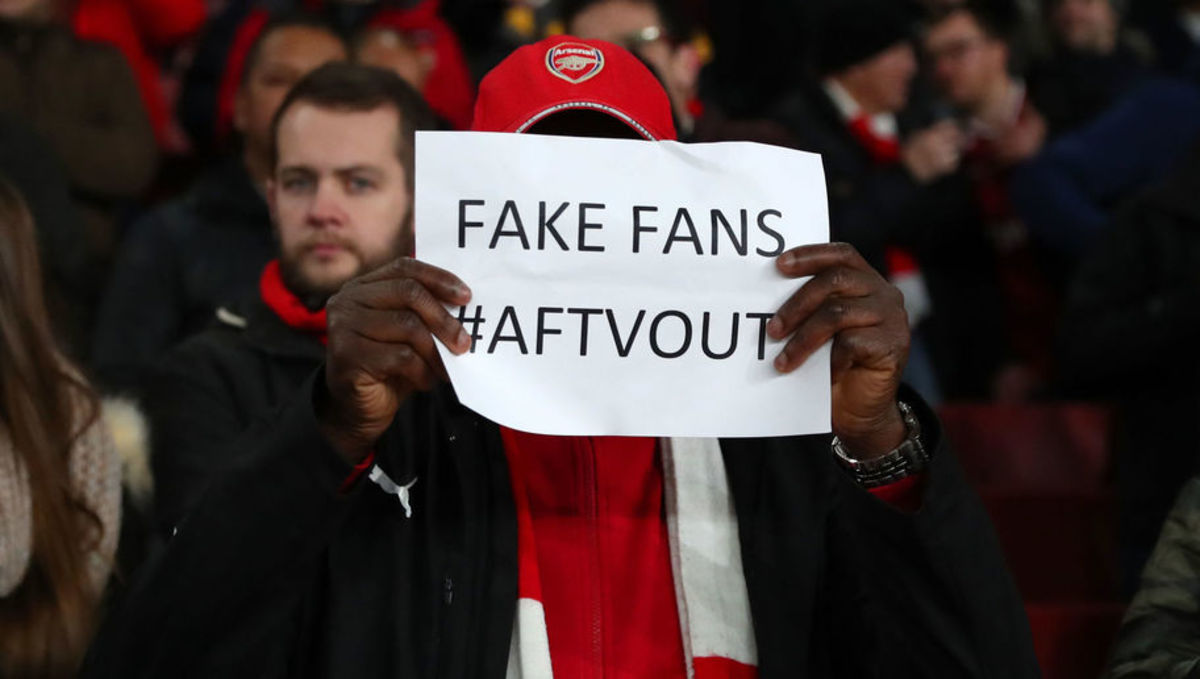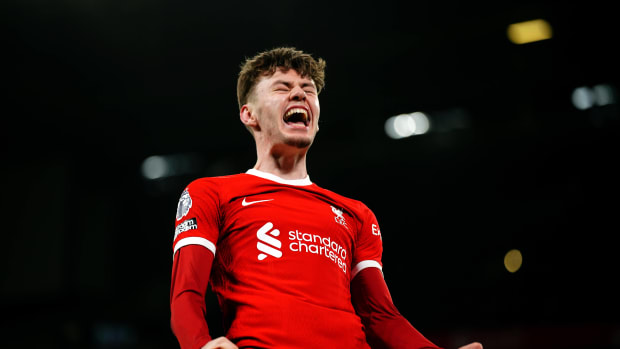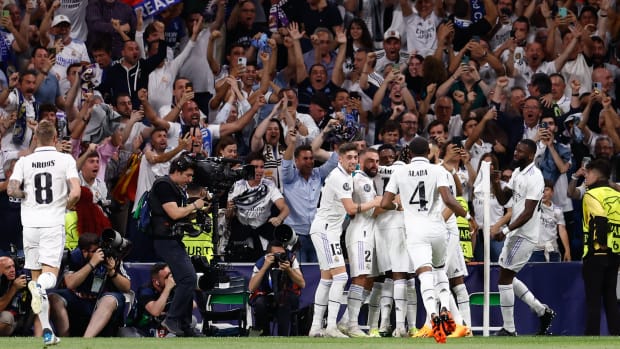Arsenal Fan TV & Biting on Tweets: The Effect of Social Media on British Football Fan Culture

Social media is an intriguing thing. Twitter offers the unique experience of being able to tell football players just what you think of them, whether that's positive or negative. It also gives football fans the chance to engage with each other in a way that just a decade ago would've been reserved for the stands on match day.
But is this social media influence a positive or negative thing?
The emergence of YouTube channels such as Arsenal Fan TV has offered a perfect insight into what may well be a dying breed of football fan within the UK.
Amongst all the ridicule, the over the top nature of some of the interviewees, and the weekly edition of Claude berating Ty, the supporters who appear on AFTV are really no different to most other football fans nationwide. Every club has a realist like DT, a blind optimist like Ty and a brow beaten, hasn't-missed-a-game-in-40-years supporter like Claude.
These supporters who appear on AFTV every week are made fun of, they're held up to the social media world as laughing stocks, but to view them as such is not only inaccurate, it's deeply unfair and it's a narrative that's been propagated by a new generation of football fans who simply don't get it, and a mainstream media who are painfully out of touch.
But what is it?
It is what football fan culture used to consist of. Being taken to the match from a young age by your Dad (stereotype I know but roll with it), waiting with him in the pub until finally you can leave and start your walk to the stadium. Waiting in the queue to get your overpriced program which was basically 20 pages of adverts, before you eventually get to your seat, where you take in the sheer magnitude of what's about to unfold in front of you.
As you grew up the culture would evolve with you, you start going to away games with mates, you drink on the train, maybe you spend 45 minutes of the 90 making some choice comments and gestures towards the home fans.
The point of this isn't to glamorise, but to point out that this rite of passage for generations of football fans is dying out. Perhaps it has something to do with the working class being priced out of games by inflated ticket prices, perhaps however, it's the overwhelming influence that social media is having over football fan culture in 2018.
The Twitter generation is different. Instead of going to the game with their mates, anonymous Twitter accounts are prioritising trying to get people to bite on their tweets. "No idea how X are top of the league, small club and terrible fans" says @OzilAssist, whose profile picture is a heavily edited picture of the German and whose pinned tweet is a thread of his or hers best tweets.
When did getting football fans to reply angrily to tweets become a badge of honour? Why is the next generation so focused on retweets and favourites instead of actually being at games?
Let's use our hypothetical Twitter friend @OzilAssist again for an example. Arsenal lose away to Spurs and Mr.Assist sends out your bog standard wind up tweet with the THFC hashtag. Spurs fans inevitably bite. OzilAssist is in his element, "Spurs fans all biting in my mentions" with a laughing emoji.
The thing is, when you factor in bites on tweets and how many people you've wound up, the scoreline remains the same and as far as I know there's no "number of times fans have bitten on tweets" column in the Premier League table. The result of the match is becoming more of a support act to the main show; who can get the most responses on social media.
Football fan culture is constantly evolving, and perhaps this Twitter generation is what will eventually become the norm, but we're in serious danger of losing the quintessential football fan experience in the UK and by virtue, a type of football fan that has made English football what it is today.







